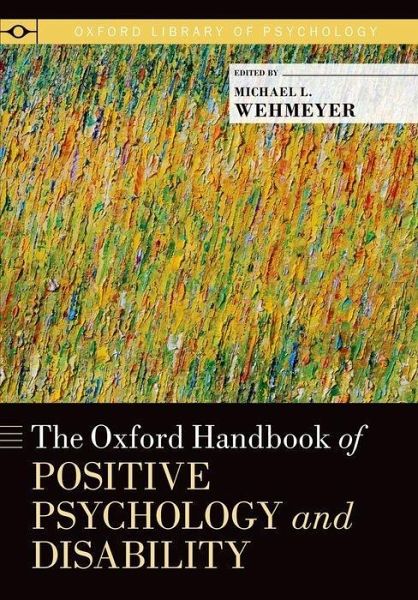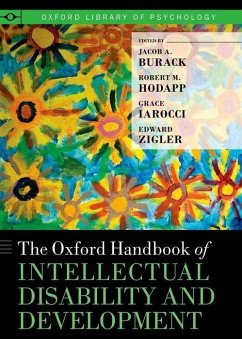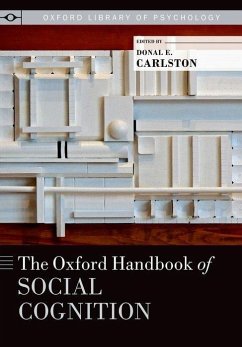
Oxford Handbook of Positive Psychology and Disability
Versandkostenfrei!
Versandfertig in 1-2 Wochen
75,99 €
inkl. MwSt.

PAYBACK Punkte
38 °P sammeln!
This handbook is the first comprehensive text on positive psychology and disability. Emphasizing paradigmatic changes in understanding disability, the text covers traditional disciplines in positive psychology as well as applications of positive psychology to domains such as education and work, and provides information on positive psychology across disability categories.














